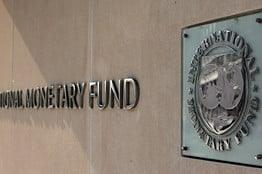The International Monetary Fund (IMF) has expressed concern about systemic deficiencies in Pakistan’s governance, which highlights political interference in the supply of officials and calls for institutional reforms to limit corruption.
According to sources familiar with the case, the IMF CEO Kristalina Georgieva raised these concerns during a meeting with Pakistan’s Finance Minister Muhammad Aurangzeb in Washington.
The IMF manager pointed to weaknesses in institutional responsibility and fragmented decision-making processes, which she warned, creates an environment that is conducive to corruption.
The IMF’s assessment follows extensive consultations with Pakistan’s departments and includes recommendations aimed at improving government. Among its most important proposal are robust anti -corruption measures and tighter supervision of public procurement systems.
The fund has also allegedly tied up improvements in performance and procurement transparency to structural responsibility and emphasizes the need for reforms to ensure credibility in the public sector.
In response, Aurangzeb Georgieva assured of Pakistan’s obligation to implement the agreed reform agenda. Sources said the minister repeated the government’s decision to tackle the IMF’s concerns as part of its wider economic recovery program.
During his visit to Washington, the Minister of Finance also met with institutional investors and briefed them on Pakistan’s economic prospects and recent fiscal and monetary development.
He noted that the recent reforms in the economy, the energy sector and the taxation have contributed to restoring the investor’s confidence and paving the way for Pakistan’s re -journey to international financial markets.



